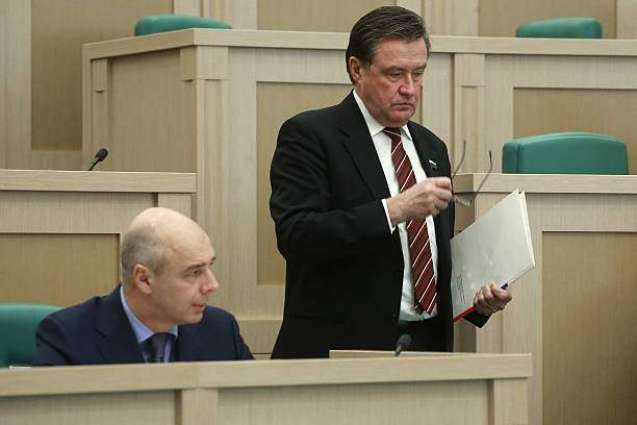Washington's position regarding Russia's Nord Stream 2 gas pipeline project is nothing short of blackmail and Moscow hopes that its European partners will not fall for it, Chair of the Russian parliament's upper chamber Committee on the Budget and Financial Markets Sergey Ryabukhin told Sputnik
MOSCOW (Pakistan Point News / Sputnik - 11th December, 2018) Washington's position regarding Russia's Nord Stream 2 gas pipeline project is nothing short of blackmail and Moscow hopes that its European partners will not fall for it, Chair of the Russian parliament's upper chamber Committee on the Budget and Financial Markets Sergey Ryabukhin told Sputnik.
On Monday, US Assistant Secretary of State for Energy Resources Francis Fannon said Washington believed that the construction of the pipeline posed "broad geostrategic threats" to European security and called on all parties to withdraw from it.
"This is a real war, real blackmail. The United States offers its raw materials that are at least 30 percent more expensive than Russian resources. And it is situations like this, when the United States cannot compete with Russia, that infuriate Washington and force it to resort to such means," Ryabukhin said.
According to the lawmaker, Russia hopes its European partners will not fall for the US blackmail, because it would be "suicidal" for them to chose to overpay for US gas when they can buy fuel from Russia at a lower price.
"Our European partners understand this perfectly well themselves. It would be suicidal for all European countries to decide to buy expensive US gas. Russia will continue to explain its stance to its partners," Ryabukhin added.
The Nord Stream 2 project envisages the construction of two pipelines that would run at the bottom of the Baltic Sea and deliver gas directly to Europe, making it unnecessary to transport the fuel via other countries. The pipelines are expected to be put into operation by the end of 2019.
Apart from the United States, the project has been facing fierce opposition on the part of Ukraine, which is afraid of losing its revenues from the transit of Russian gas to Europe, and a number of European countries, including Poland, Latvia and Lithuania.




